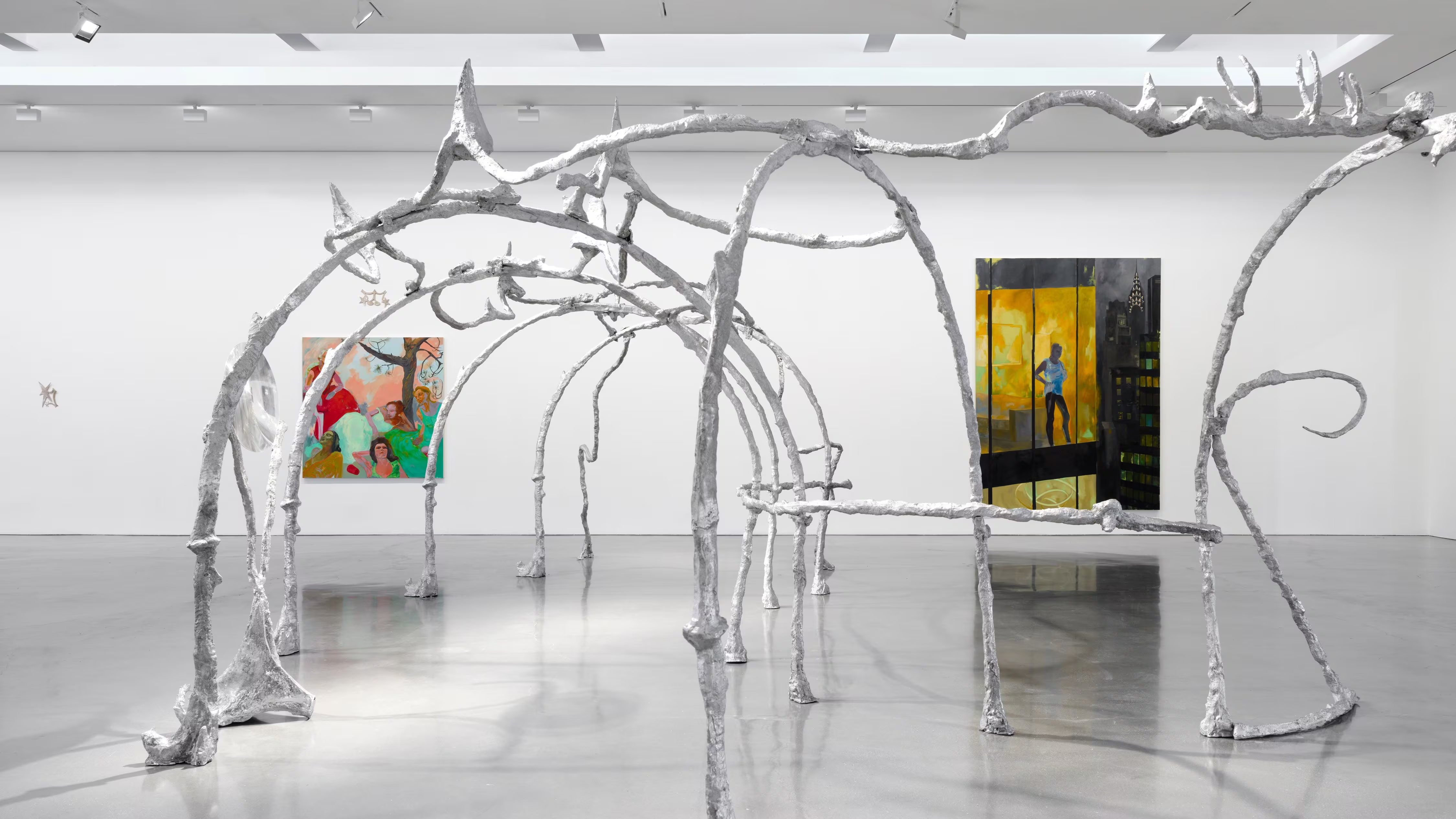Francis Mallmann has lived many lives. He’s pioneered open-fire cooking, built his own restaurants from the ground up—plus a museum—and even picked up embroidery. Through it all, Family Style's Summer 2024 guest chef has learned lessons that make life a little sweeter.

When the opportunity to speak with Francis Mallmann, our guest editor for Family Style's Summer 2024 design, landed in my lap, I naively assumed that our conversation would be filled with musings on the primal allure of cooking over open flame or how his learning to harness the power of fire in his native Buenos Aires ended up changing his life. Instead, bound to each other through our screens, we speak almost entirely about things completely unrelated to food.
Mallmann, 68, is perhaps most readily recognized for his towering, scaffolding-like Argentine grills powered by open flames that evoke rocketing spaceships flanked by foodstuffs. His culinary journey has taken him across the globe only to bring home again. Throughout a decades-long career, he has worked in some of the world's most renowned restaurants, most notably in France, where he trained under legendary chefs like Alain Chapel and Paul Bocuse. But his vision also extends beyond the kitchen and outside of his quincho grills, into several cookbooks that explore his adoration for Argentine culinary traditions. He currently operates 11 restaurants and La Isla, a boutique, invite-only hotel in Patagonia. One must take a plane, a car, and then a boat to get there, and no other buildings exist on the private island. This property, which Mallmann designed and restored himself, reflects his deep connection to nature, appreciation for the simple pleasures of life, and an intimate understanding of the connection between culture and design. Built with local wood and stone, Mallmann’s architecture blends seamlessly with the surrounding environment, creating a sense of tranquility.
.webp)
There is a disarming ease in which Mallmann tells a story and the way he smiles when recalling a memory. Sure, he is one of the greatest chefs in the world, but mostly he is a man deeply inspired by beauty and gratitude. He answers my video call surrounded by blossoming works from Marie Ducaté, a French painter and ceramicist who, for the last 18 years, has visited Uruguay for two months out of every year. The chef has collected so much of her work that he decided to open up a museum and residency in the country, where he works and lives. He regularly invites other chefs and artists of all disciplines to work alongside him in his studio.
“I can't feel lonely here,” he says, speaking from the museum. He rotates his phone to show the art. The room is bursting with natural sunlight, textiles, and color. What does an average morning look like for a man with so many restaurants to run, books to write, art projects to commission? “I wake up at 5 a.m. and get out of bed,” he says, happily. “I love that time because I don't work. Everybody's sleeping, so it's time for me. That’s when I read or write or paint or sew; I love sewing. So those are my mornings—until 9:30 when I start working.”
“One of the most important ingredients of food is patience; with patience, you reach the most beautiful edges of the world.”
— Francis Mallmann
At one point, Mallmann leans toward the camera as if to peer directly into my soul. “You know the beautiful thing is that life really starts at 60. That's when it really gets
good,” he says. Later he tells me, “One of the most important ingredients of food is patience; with patience, you reach the most beautiful edges of the world.”
Mallmann repeats this several times as if he wants the rest of the world to know just how beautiful life can taste with a few tweaks. The chef has worked tirelessly to ensure that all of his restaurants have a similar ethos. “There's no comfort in our life; there's always troubles in the background: the politics, the government, inflation,” he explains. “That is so beautiful, because it makes us always ready to make changes. And change is the most important thing in life ... I don't like comfort. I like a comfortable chair, but after a while I know I have to get out.”

It is this dedication to a lifetime of learning that keeps Mallmann so passionate. You can feel it in his most recent book, Green Fire: Extraordinary Ways to Grill Fruits
and Vegetables, from the Master of Live-Fire Cooking, where he repurposes methods historically saved for meat and reintroduces them in plant-forward recipes. I ask the chef who has done so much if there’s anything he would like to do that he hasn’t had the time to accomplish yet. So many things, apparently. “I would love to be a pianist,” he says with a smile. “I would love to be a couturier, a fashion designer of handmade and beautiful things.”
Regardless of his vocation, Mallmann doesn’t have bad days. The secret? “You say no in a nice way,” he says. You don't have to slam doors or shout. You choose more with kindness as you grow.”














.avif)


_result_result.avif)



.avif)

_result_result.avif)

_result_result.avif)
.avif)

_result_result.avif)


_result_result.avif)


.avif)




.webp)

.avif)













%20(1).avif)
.avif)




.avif)








.avif)


.avif)





















.jpeg)

.avif)

_11%20x%2014%20inches%20(2).jpg)







.avif)

.jpg)

%20(1).jpg)
.avif)
.jpg)

.jpg)
.webp)


.webp)



.webp)


.webp)


.avif)












.avif)
.avif)












.avif)



.avif)




















-min_result.avif)









.avif)







3_result.avif)
_result.avif)






_result.avif)




.avif)




.avif)













_result.avif)




%2520(1)_result.avif)
_result.avif)


_result.avif)

_result.avif)



.avif)

.avif)



















.avif)


_result_result.avif)
















-min_result.avif)






.avif)
.jpg)
















_result.avif)

.avif)


.avif)







.avif)





.avif)

_result.avif)



.avif)









.avif)

















.avif)




.avif)








.avif)

.avif)

.avif)



.avif)


.avif)




.avif)

.avif)

.avif)
.avif)
%20(1).avif)
.jpg)

%20(1).avif)








.avif)
.avif)

.avif)






.avif)


.avif)
.avif)



.avif)
.avif)
%20(1).avif)

.avif)
.avif)

.avif)
.avif)



















.avif)
.avif)
